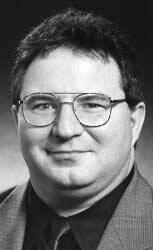As I write this, I am two weeks away from making my 14th trip to post-Hurricane Katrina New Orleans. I am reflecting on how in late August 2005, four-fifths of that city was flooded when three poorly-built levees broke beneath Katrina’s blows. The resulting death and devastation made grim headlines worldwide.
So did official Washington’s shameful, almost surreal failure to rush resources to the rescue. The disaster’s predominantly African-American, low-income victims were not treated as fellow citizens. Some politicians and journalists even took to calling these suddenly homeless Americans “refugees.”
Were it not for heroics by the U.S. Coast Guard, Katrina’s initial human, property and financial toll would have been much worse. And were it not for nonprofit organizations, ranging from little local congregations to citywide operations like Catholic Charities of New Orleans, the post-Katrina recovery process would have moved even slower.
It has been three-and-a-half years since biblical-sized floods blanketed the Big Easy. Poverty, crime and other ills that were bad before are bad or worse there today. Affordable housing, health care and other basic human needs are far from well met. Many Hispanic immigrants involved in hazardous clean-up or construction jobs continue to be exploited by unscrupulous employers.
Still, New Orleans now has about three-fourths of its pre-Katrina population. Even in these bad financial times, its economy is jazzy and growing. Its natives’ infectiously warm hospitality and inimitable civic spirit have been revived. Its struggling Hispanic residents have given the historic city’s demographic gumbo its first mighty 21st-century stirring. Volunteer-saints from all across the United States still go marching in to help.
As on my previous post-Katrina trips, I will not be alone. Over 100 spring break student-volunteers from the University of Pennsylvania will be with me. Though Penn is a proudly nonsectarian Ivy League university, founded by Benjamin Franklin, it boasts undergraduate student religious life organizations that make for a marvelous faith-based mosaic: Jewish students with the Hillel Center, Catholic students with the Newman Center and over a dozen other groups. I am proud that since September 2005, these groups and other Penn undergraduates and recent graduates have dedicated over 1,000 weeks of service in post-Katrina New Orleans.
But my Penn pride here also directly touches my Catholic identity. Speaking at Penn’s Wharton School of Business on Oct. 14, 2005, Archbishop Alfred C. Hughes of New Orleans energized the predominantly non-Catholic crowd by telling how the archdiocese was opening its arms and its schools to poor children of every faith and of no faith. Non-Catholic colleagues who have never held a brief for the church were moved (in several cases to tears) by the soft-spoken archbishop.
Thereafter, in communications with me and other Penn colleagues, Jim Kelly, C.E.O. of Catholic Charities of New Orleans, laid down a civic marker: If Penn would make a five-year commitment to service-learning in the city, Catholic Charities would co-sponsor internships and other initiatives with Penn there.
An elite secular university located 1,100 miles away working in tandem with a Catholic nonprofit? Kelly termed the improbable secular-religious civic partnership “a covenant to serve.” Its early fruits are captured in a video with that title on a Penn Web site (www.foxleadership.org).
As Kelly has so eloquently stated, the covenant is not between secular Penn and its Catholic partners, but between both of them and the people whose lives were shattered and shuttered by the floods, people who now seek to rebuild their city and reclaim their communities.
The covenant continues. Starting this summer, five recent Penn graduates will be working full time in New Orleans on various Catholic Charities community-serving projects.
Maybe the partnership is not so improbable after all. Franklin started Philadelphia’s first library company, giving it a Latin motto that translates thus: “To pour forth benefits for the common good is divine.” Penn’s founder emphasized deeds over words. He was also for supporting any faith that forged good works.
Sound familiar?








